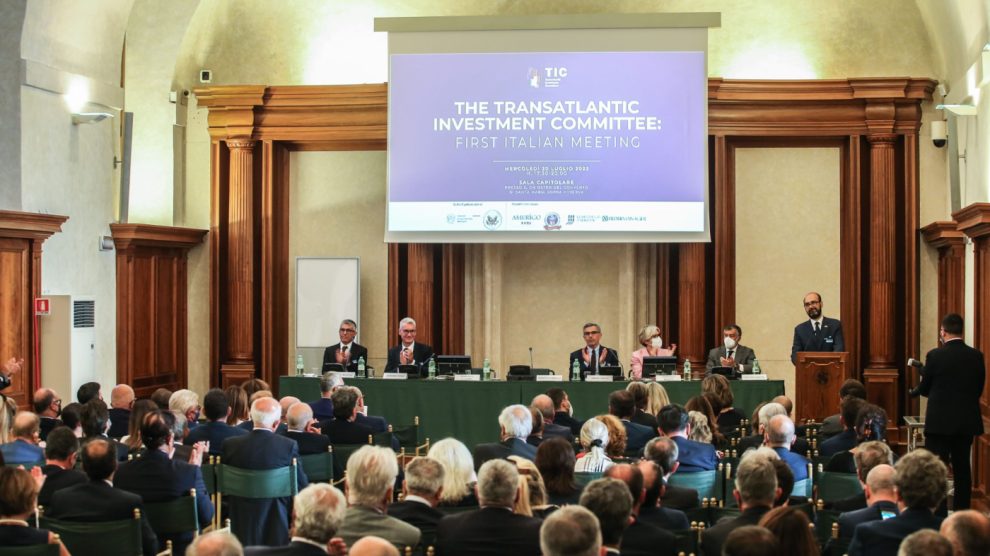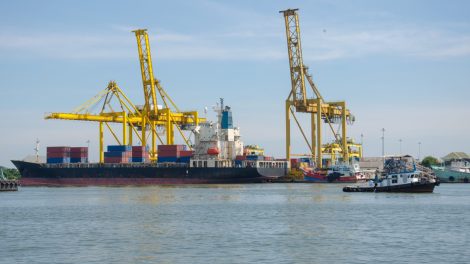The rise of the Transatlantic Investment Committee. As the name suggests, the months-old TIC is a platform to coordinate investments and build a new area of cooperation between Italy and the United States. And it’s got heavy hitters backing it.
- Its founding members include Associazione Amerigo, the American Chamber of Commerce in Italy, Centro Studi Americani and Federmanager, under the patronage of the Italian Embassy in Washington and the US Embassy in Rome.
- It was officially launched in October, when Foreign Minister Luigi Di Maio described it as “an important platform for discussion and collaboration on investment opportunities, which are increasingly wide-ranging and strategic, between Italy and the United States”.
Italian banks are in. They are “ready to make their contribution to the TIC […] which can become a key forum for the internationalisation of companies,” said Giovanni Sabatini, director general of the Italian Banks Association (ABI), speaking at the Italian TIC’s first official meeting on Wednesday.
- Italian banks are ready to offer their support to companies. However, if the rules call on them to stock up more capital, they promote stability but reduce the amount of available credit for companies, explained Mr Sabatini. “We need a proper balance,” he said, adding that the primary objective “is to revive growth to prevent the sharp slowdown from turning into a recession.”
The next frontier(s). As Andrea Gumina, president of the Amerigo Association, noted: “the next decade will be played in the field of joint investments in frontier sectors: aerospace, mechatronics, digital, biotech, clean tech.” Here’s the how in five pillars:
- Promoting a transatlantic foundation;
- Designing and launching a transatlantic investment fund;
- Structuring a transatlantic platform for training and research;
- Promoting an annual report – with the collaboration of ISPI, the Italian Institute for International Political Studies, and the Atlantic Council – on the necessary policies to support investments;
- Constructing a business-matching path between leading businesses.
Keyword: cooperation. The TIC project sits within the broader context of Euro-Atlantic collaboration that has been set in motion through the Trade and Technology Council (TTC). And as such, it’s in line with the overarching partnership framework.
- On supply chains. We must “strengthen the robustness of our value chains by shortening them” while “ensuring their resilience through diversification of foreign markets, for both exports and raw material supplies,” said Mariangela Zappia, Italy’s ambassador to the US, during Wednesday’s event.
- On economy and democracy. Christina Tomlinson, Minister Counsellor for Public Affairs at the US Embassy in Italy, recalled the West’s“unprecedented” unity in the face of Russia’s “brutal” invasion of Ukraine and the challenges of globalisation, as demonstrated by the Covid-19 pandemic. “We have a shared commitment to open and competitive markets,” she added, warning against anti-competitive situations that are peculiar to autocracies.
- On fostering ties. “The trade disputes of recent years have perhaps, for some, obscured the inescapability of the link between Italy and the US,” said Francesca Mariotti, general director of Confindustria (the Italian Chamber of Commerce). However, “businesses have never stopped looking for ideal conditions for development because the link between the two countries, for businesses, is inextricable. We believe in it.”
- On security. Former ambassador Giampiero Massolo emphasised the importance of “incorporating the concept of security into the concept of value creation,”. I.e., “value must not necessarily be produced at the expense of security.” This requires synergies with allies, he explained in words that brought to mind crucial issues such as 5G.
Moving on. Wednesday’s event was meant to kickstart a multilateral dialogue involving the industrial and financial world, the leadership, and all the political forces in Italy. The outcomes will form the basis for developing shared strategies at the following meetings in Brussels (September 28) and Washington DC (October 28).
- The first TIC – ISPI Policy Report will be presented at the Washington event, and strategies will be extended to the main US partners by then.





